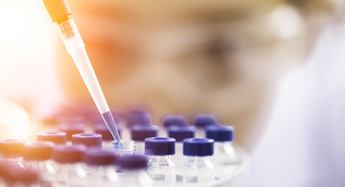Pricing: highlights of the J.P. Morgan Healthcare Conference
February 2020
The annual J.P. Morgan Healthcare Conference Healthcare Conference in San Francisco is the largest and most informative healthcare investment symposium in the industry. Our multi-jurisdictional Life Sciences team was present and we report the most interesting highlights.
One of the major hot topics in healthcare remains drug pricing. Pricing in this highly regulated and multifactorial industry is a complex issue. Countries worldwide aim to ensure access to medicinal products and health services using various approaches and having widely different results. The aim, however, is clear – the governments push the prices of the manufacturers down.
Drug prices are one of major election topics in the US. In other countries, when new therapies are developed they may be delayed by about two years or even more. Conversely, in the US, when a therapy is approved by the FDA, the question is at what price. The price is usually higher, and the US feels like it is paying for the rest of the world.
The US has increased negotiation power thanks to price caps based on an international index of countries. The rationale behind this is for reference pricing to help the US to decrease pricing, as the US should not bear all costs. However, there is a risk that it will have negative implications for European countries, which serve as reference countries as they have lower drug prices. This may have implications for drug launches in these countries, which may be delayed as a result.
In addition, the US proposes to import cheaper drugs from abroad (eg importing drugs from Canada or other countries). But are there enough products? Manufacturers have limited manufacturing capacities and may limit the quantity for export. The underlying question is how the USA as a nation is going to be investing in health.
Globally, there is an increasing pressure on patent and other exclusivity protection of medicinal products. This has been already reflected in the recently approved European Regulation (EU) 2019/933 on supplementary protection certificates for medicinal products which introduces a new exception to the infringement of an intellectual property right.
There are other proposals that target patent protection, ability to obtain patents and achieve patent settlements.
In the US, it is reflected in proposals for patent system reforms (bills limiting the ability to obtain patents covering pharmaceuticals, bills focused on product hopping, patent settlement bills).
Likewise, companies in the EU are witnessing an increasing number of antitrust cases related to patents in pharmaceutical sector (eg the recent ruling by the Court of Justice of the European in the GSK case (Case C-307/18 Generics (UK)).
The Court confirmed that pay-for-delay agreements in the pharmaceutical industry may restrict competition by object or by effect. The ruling also confirms that entering into such an agreement may also be an abuse of a dominant position.
Another issue closely linked with drug pricing is their shortage. While the US envisages importation of drugs from foreign countries, the EU is struggling with drug shortages.
Medicines shortages have multiple root causes such as manufacturing capacities issues, economic related issues and supply chain issues. The European Medicines Agency and the Heads of Medicines Agencies formed a task force to investigate availability issues and supply chain disruptions across Europe.
Discrepancy between the volume of exports and imports and the actual patients’ needs, can give rise to shortage of a medicinal product. This has been the case in many CEE countries. National governments are trying to tackle it on its own and many of them introduced restriction of drug exportation.
It follows that measures taken with respect to national drug pricing may have world-wide implications and trigger changes in other countries.
If you have any questions on this article or would like to propose a subject to be addressed by Synapse please contact us.


Barbora Dubanská
Barbora is a partner in our Prague and Vienna offices, and Co-Head of our CEE Life Sciences group.
"Globally, there is an increasing pressure on patent and other exclusivity protection of medicinal products."

